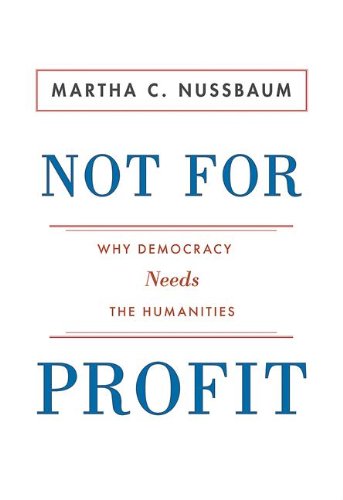Not for Profit: Why Democracy Needs the Humanities Link to heading
Summary Link to heading
“Not for Profit: Why Democracy Needs the Humanities” by Martha C. Nussbaum is an exploration into the crucial role that the humanities play in maintaining and nurturing democratic societies. Nussbaum argues that the focus on economically driven education systems, which prioritize science, technology, engineering, and mathematics (STEM), undermines the core values of democracy. The book posits that education should foster critical thinking, empathy, and a sense of global responsibility—values primarily nurtured through the humanities and the arts. Nussbaum underscores the importance of these disciplines in cultivating informed and engaged citizens essential for a vibrant democracy.
Review Link to heading
The book has been praised for its compelling argument that champions the humanities in an era of increasing educational utilitarianism. Nussbaum’s work is novel and robust, providing a well-reasoned critique of current educational trends. One strength is her ability to ground her arguments in philosophical and historical contexts, allowing for a profound understanding of how these fields enrich public life. However, some critics argue that the book’s focus can be somewhat narrow, perhaps undervaluing the role that STEM fields can also play in fostering critical democratic values. Nonetheless, “Not for Profit” is a thought-provoking and timely defense of the humanities.
Key Takeaways Link to heading
- Humanistic Education’s Role: The humanities are crucial for developing critical thinking and empathy, which are vital for democratic engagement.
- Educational Reform: Current educational systems should integrate more humanities content to produce well-rounded citizens rather than solely career-focused individuals.
- Global Citizenship: Humanities education cultivates an understanding of multiple perspectives, fostering a sense of global responsibility.
- Historical Context: The book provides historical examples of how the humanities have contributed to the strength and maintenance of democratic societies.
Recommendation Link to heading
“Not for Profit: Why Democracy Needs the Humanities” is highly recommended for educators, policymakers, students, and anyone interested in the intersection of education and democracy. It is especially pertinent for those involved in educational reform or interested in the broader impacts of curriculum design on societal structures. Nussbaum’s insightful analysis can help readers appreciate the humanities’ invaluable contribution to nurturing democratic ideals.
